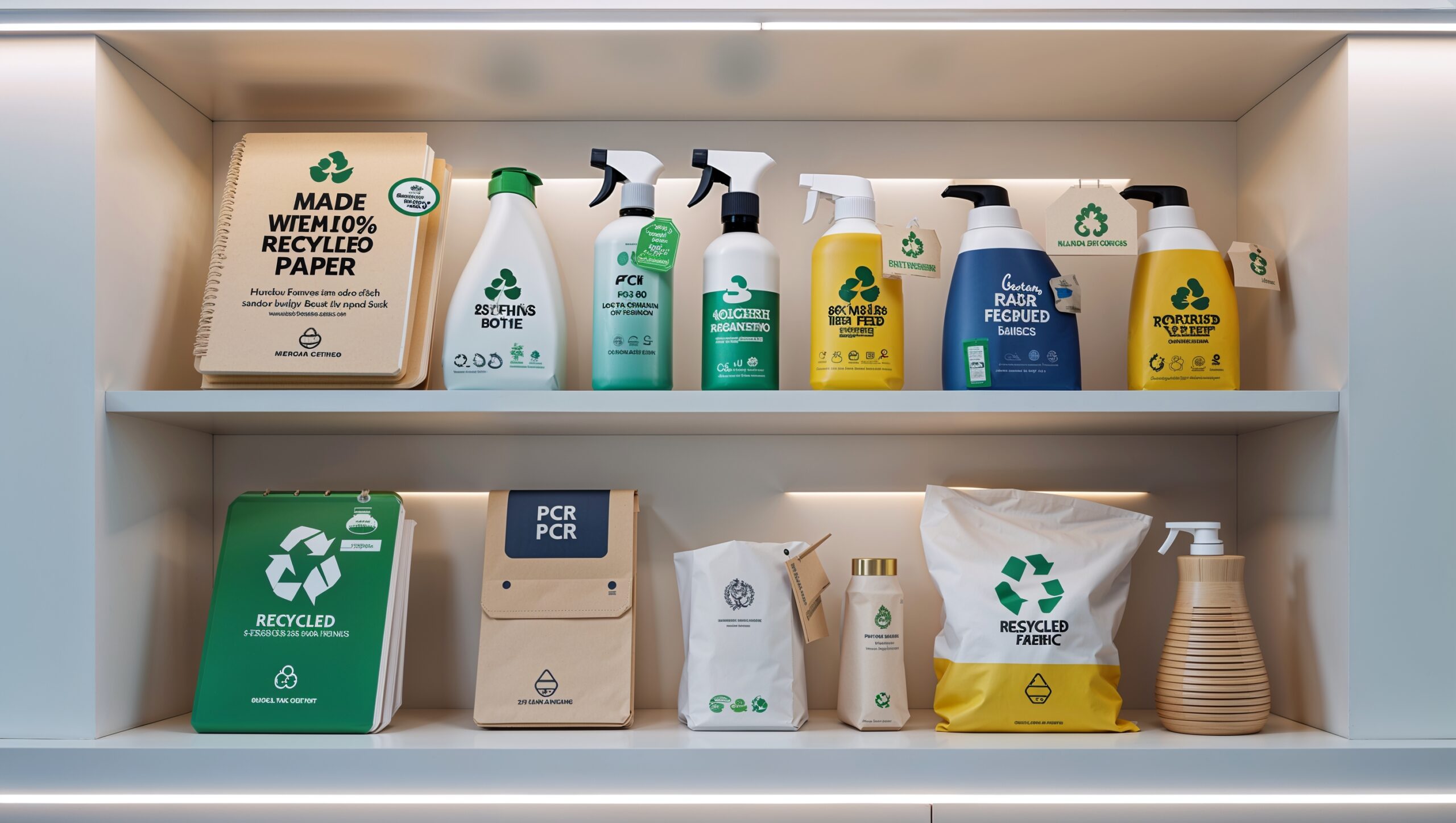When we talk about recycling, most of the focus goes to what we throw away. But there’s another side to the recycling story — and it’s just as important: what we choose to buy. Recycling isn’t complete until the materials we sort, clean, and send off are made into something new — and purchased again.
In this article, you’ll discover the many benefits of buying recycled products, how to identify them, and why supporting the circular economy is a powerful move toward a sustainable future.
What Are Recycled Products?
Recycled products are items made — entirely or partly — from materials that were previously used, collected, and reprocessed. These can include:
- Post-consumer recycled content (from items like bottles, paper, or cans)
- Post-industrial recycled content (from manufacturing scraps or excess)
- Remanufactured goods (repaired or rebuilt from used parts)
Examples include:
- Office paper made from used paper
- Backpacks made from recycled plastic bottles
- Furniture from reclaimed wood
- Clothing from recycled fabric fibers
- Detergent bottles from recycled HDPE plastic
1. Reduces Demand for Virgin Resources
Buying recycled means we use less raw material — like trees, water, oil, and minerals — to make products.
🌍 This leads to:
- Less deforestation
- Less mining and drilling
- Fewer ecosystems destroyed for raw materials
It’s one of the most effective ways to reduce our environmental footprint through consumption.
2. Conserves Energy and Water
Producing items from recycled materials generally takes less energy and water than starting from scratch.
🔋 Examples:
- Making recycled aluminum uses 95% less energy than new aluminum
- Recycled plastic uses up to 70% less energy
- Recycled paper production saves 60% of energy and thousands of liters of water
This reduces greenhouse gas emissions and helps conserve critical resources.
3. Keeps Waste Out of Landfills
Every recycled product purchased means that some material avoided the landfill — and came back to life instead.
✅ Benefits include:
- Less landfill use and expansion
- Fewer methane emissions from decomposing waste
- Less ocean-bound plastic and microplastic pollution
- More sustainable supply chains
Supporting recycled goods helps close the loop in the circular economy.
4. Supports the Recycling Industry
Recycling works best when there’s demand for the materials being collected. Buying recycled:
- Encourages companies to use recycled content
- Helps stabilize recycling markets
- Justifies investment in better recycling infrastructure
- Creates green jobs in processing and manufacturing
Your purchase sends a signal to producers: “We want sustainable products.”
5. Often Matches (or Exceeds) Quality
Recycled products have come a long way. Today, many are:
- Durable and reliable
- Aesthetically pleasing
- Certified for performance and safety
- Indistinguishable from virgin material alternatives
Plus, some recycled goods have unique textures, colors, or stories that add value and meaning.
6. Encourages Brands to Innovate
When consumers prioritize recycled products, brands get creative:
🚀 They develop:
- Packaging from recycled ocean plastic
- Fashion lines from textile waste
- Recyclable and refillable containers
- Products made from 100% post-consumer materials
This leads to innovation across industries — from fashion to construction to tech.
7. Makes You a Circular Economy Champion
The circular economy is an economic model that focuses on reducing waste and keeping materials in use for as long as possible. Buying recycled:
- Helps materials stay in circulation
- Reduces “take-make-dispose” cycles
- Fosters a regenerative system instead of a linear one
It’s a practical way to live out your sustainability values.
How to Identify Recycled Products
Look for these indicators when shopping:
🔎 Labels and symbols:
- “Made with Recycled Content”
- “Post-Consumer Recycled” or “PCR”
- Eco-certifications like Cradle to Cradle, Blue Angel, or Green Seal
📍 Common categories:
- Office supplies (paper, folders, pens)
- Personal care products (toilet paper, packaging)
- Cleaning supplies (spray bottles, detergent jugs)
- Fashion and accessories (bags, shoes, T-shirts)
- Home goods (furniture, rugs, decorations)
When in doubt, ask the brand or read the product description.
Every Purchase Is a Vote
Every time you buy something made from recycled materials, you:
- Reduce your impact on the planet
- Close the loop on waste
- Encourage better business practices
- Help recycling stay viable and effective
In short: you’re not just a recycler — you’re part of the solution.
